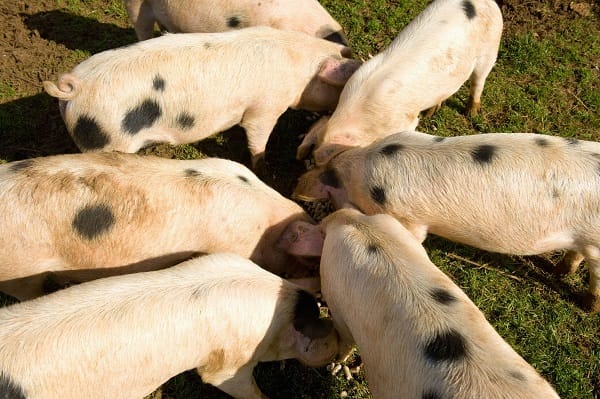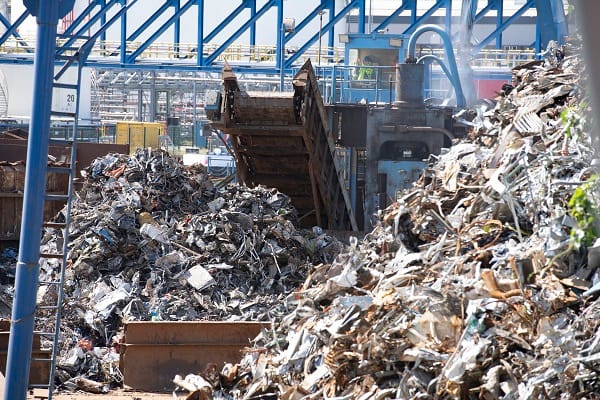Sustainability is increasingly becoming a cornerstone of modern agriculture, and animal farming is no exception. Farmers are finding innovative ways to reduce waste, conserve resources, and improve efficiency in their operations. One such solution is the use of bulk feed bags, which offer durability, reusability, and eco-friendly benefits. Particularly, polypropylene bags are emerging as the gold standard for bulk storage, helping farmers align with sustainable practices.
This article delves into how bulk feed bags reduce waste and support eco-friendly farming, offers tips for selecting and maintaining these bags for longevity, and underscores their critical role in sustainable animal farming.
How bulk feed bags promote sustainability
1. Waste reduction
Traditional feed packaging often relies on single-use materials such as paper or plastic, which generate significant waste. Bulk feed bags, particularly those made from polypropylene, are designed for repeated use, minimising the need for disposable packaging. Their durability reduces the risk of tears or spills, ensuring that feed is stored and transported efficiently without waste.
Moreover, the reusability of bulk feed bags helps decrease the reliance on single-use plastics, aligning with global efforts to reduce landfill contributions and environmental pollution.
2. Cost and resource efficiency
By enabling farmers to purchase and store large quantities of feed, bulk feed bags reduce the frequency of deliveries. This not only saves on transportation costs but also cuts down on the greenhouse gas emissions associated with shipping. Additionally, their design protects feed from moisture and contamination, ensuring that resources are utilised efficiently without spoilage or loss.
3. Recyclability
Polypropylene bags, widely used for bulk feed storage, are recyclable, making them a more sustainable option than other materials. At the end of their lifecycle, these bags can be repurposed into new products, supporting a circular economy and reducing the overall environmental footprint of farming operations.
Tips for selecting and maintaining bulk feed bags
To maximise the benefits of bulk feed bags, it’s essential for farmers to choose the right bags and maintain them properly. Here are some practical tips:
1. Choose high-quality materials
Polypropylene bags are an excellent choice due to their strength, flexibility, and resistance to environmental stressors like UV rays and moisture. Selecting bags with additional protective features, such as inner liners, can further safeguard the feed from contamination.
2. Select appropriate sizes
Farmers should consider their specific needs when choosing the size of their bulk feed bags. Large-scale operations may benefit from bags with higher capacity, while smaller farms might find medium-sized bags more manageable and practical.
3. Store in optimal conditions
Proper storage is critical for maintaining the longevity of bulk feed bags. Keep them in a cool, dry area away from direct sunlight to prevent UV damage and degradation. Elevate the bags off the ground using pallets to avoid exposure to moisture or pests.
4. Regular cleaning
After each use, clean the bags thoroughly to remove residual feed, which could attract pests or lead to mould growth. Regular cleaning also ensures that the bags remain safe and hygienic for future use.
5. Inspect and repair
Frequent inspections can help identify wear and tear early, allowing farmers to make minor repairs before the damage becomes irreparable. This proactive approach extends the lifespan of the bags and reduces the need for replacements.
Why polypropylene bags are ideal for animal farming
Polypropylene bags are particularly suited for animal farming due to their durability and eco-friendly properties. Their resistance to moisture, UV rays, and general wear makes them a reliable choice for storing and transporting feed in various environmental conditions. Additionally, their recyclability ensures they contribute to a more sustainable farming system by reducing waste, according to CodeFine, “Polypropylene bags are not only a cost-effective solution but also an environmentally responsible choice for bulk feed storage.
A practical example: Bulk feed bags in action
Consider a dairy farm that previously relied on single-use packaging for feed storage. The constant need for replacements and the accumulation of waste posed significant operational and environmental challenges. By transitioning to polypropylene bulk feed bags, the farm reduced waste, improved storage conditions, and achieved considerable cost savings. The robust nature of the bags ensured feed quality while supporting the farm’s commitment to sustainability.
A quote to inspire change
As Wendell Berry, a renowned advocate for sustainable agriculture, once said, “The care of the Earth is our most ancient and most worthy responsibility.” By adopting practices such as using durable and reusable bulk feed bags, farmers can take meaningful steps toward fulfilling this responsibility while improving the efficiency and sustainability of their operations.
Bulk feed bags are an invaluable tool in the quest for sustainable animal farming. By reducing waste, conserving resources, and supporting eco-friendly practices, they play a critical role in modern agricultural operations. Selecting high-quality polypropylene bags and maintaining them properly ensures their longevity, maximising their environmental and economic benefits.
Sustainability in farming is not just about adopting new tools; it’s about fostering a mindset of responsibility and innovation. With solutions like polypropylene bulk feed bags, farmers can make tangible progress toward a greener, more sustainable future for agriculture.






Leave a Comment